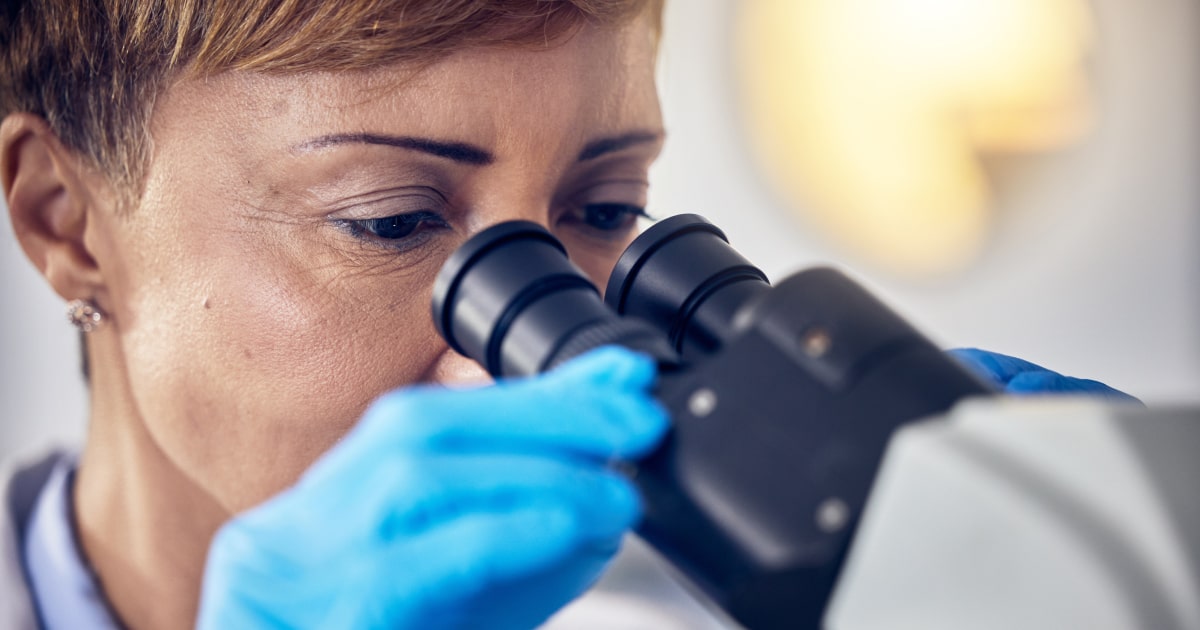
Expert Reviewed By: Dr. Brandon Colby MD
Hemoglobin H Hydrops Fetalis Syndrome is a rare and severe form of alpha thalassemia, a blood disorder that affects the production of hemoglobin. The condition can lead to severe anemia, heart failure, and even death in newborns. Understanding, diagnosing, and using genetic testing for this disease is crucial to provide timely and appropriate care for affected individuals and their families. This article will explore the importance of genetic testing in the context of Hemoglobin H Hydrops Fetalis Syndrome, as well as its implications for future research and treatment options.
Understanding Hemoglobin H Hydrops Fetalis Syndrome
Alpha thalassemia is a genetic disorder that affects the production of hemoglobin, the protein in red blood cells that carries oxygen throughout the body. Hemoglobin H Hydrops Fetalis Syndrome is a severe form of alpha thalassemia that occurs when there is a complete absence of alpha-globin chains, leading to the formation of an abnormal hemoglobin known as hemoglobin H (Hb H). This abnormal hemoglobin is unable to effectively carry oxygen, resulting in severe anemia and other complications.
As a rare condition, Hemoglobin H Hydrops Fetalis Syndrome has a prevalence of approximately 1 in 15,000 newborns, according to a study on universal newborn screening for Hb H disease in California. The severity of the disorder can vary, with some affected individuals experiencing life-threatening complications such as heart failure, hydrops fetalis (an abnormal accumulation of fluid in fetal tissues), and even death.
Diagnosing Hemoglobin H Hydrops Fetalis Syndrome
Early diagnosis of Hemoglobin H Hydrops Fetalis Syndrome is crucial to ensure appropriate care and management for affected individuals. The condition can be diagnosed through blood tests that assess the levels of hemoglobin and red blood cells, as well as genetic testing to identify the specific genetic mutations responsible for the disorder.
In a notable case reported in the journal Hemoglobin, the first instance of Hb H hydrops fetalis syndrome caused by the combination of - -SEA deletion and alphaQuong Szealpha mutation was identified in a Chinese woman. This case highlights the importance of genetic testing in diagnosing rare and complex cases of Hemoglobin H Hydrops Fetalis Syndrome.
The Role of Genetic Testing in Hemoglobin H Hydrops Fetalis Syndrome
Confirming Diagnosis
Genetic testing plays a critical role in confirming the diagnosis of Hemoglobin H Hydrops Fetalis Syndrome. By identifying the specific genetic mutations responsible for the disorder, healthcare providers can accurately determine the severity of the condition and develop appropriate treatment plans.
Carrier Screening
As a genetic disorder, Hemoglobin H Hydrops Fetalis Syndrome can be passed down through families. Genetic testing can help identify carriers of the disease, allowing couples to make informed decisions about family planning and prenatal care. In some cases, prenatal testing can also be performed to determine if an unborn child is affected by the disorder.
Informing Treatment and Management
Genetic testing can provide valuable information about the specific genetic mutations responsible for Hemoglobin H Hydrops Fetalis Syndrome, which can help inform treatment and management strategies. For example, understanding the specific genetic mutations can help healthcare providers predict the severity of the condition and determine the most appropriate interventions, such as blood transfusions or bone marrow transplantation.
Advancing Research and Treatment Options
By identifying the specific genetic mutations responsible for Hemoglobin H Hydrops Fetalis Syndrome, researchers can gain a better understanding of the underlying mechanisms of the disorder. This knowledge can pave the way for the development of new treatments and therapies, ultimately improving the quality of life for affected individuals and their families.
Conclusion
Genetic testing plays a vital role in understanding, diagnosing, and managing Hemoglobin H Hydrops Fetalis Syndrome. By identifying the specific genetic mutations responsible for the disorder, healthcare providers can provide timely and appropriate care for affected individuals, while also contributing to the advancement of research and treatment options for this rare and severe condition.
About The Expert Reviewer
Dr. Brandon Colby MD is a US physician specializing in the personalized prevention of disease through the use of genomic technologies. He’s an expert in genetic testing, genetic analysis, and precision medicine. Dr. Colby is also the Founder of and the author of Outsmart Your Genes.
Dr. Colby holds an MD from the Mount Sinai School of Medicine, an MBA from Stanford University’s Graduate School of Business, and a degree in Genetics with Honors from the University of Michigan. He is an Affiliate Specialist of the American College of Medical Genetics and Genomics (ACMG), an Associate of the American College of Preventive Medicine (ACPM), and a member of the National Society of Genetic Counselors (NSGC)